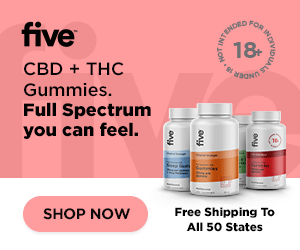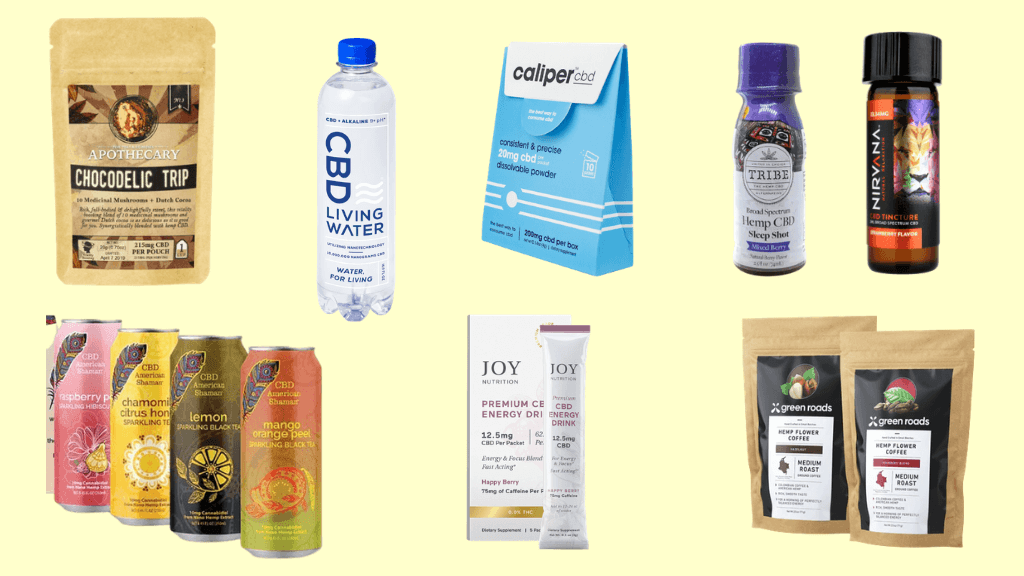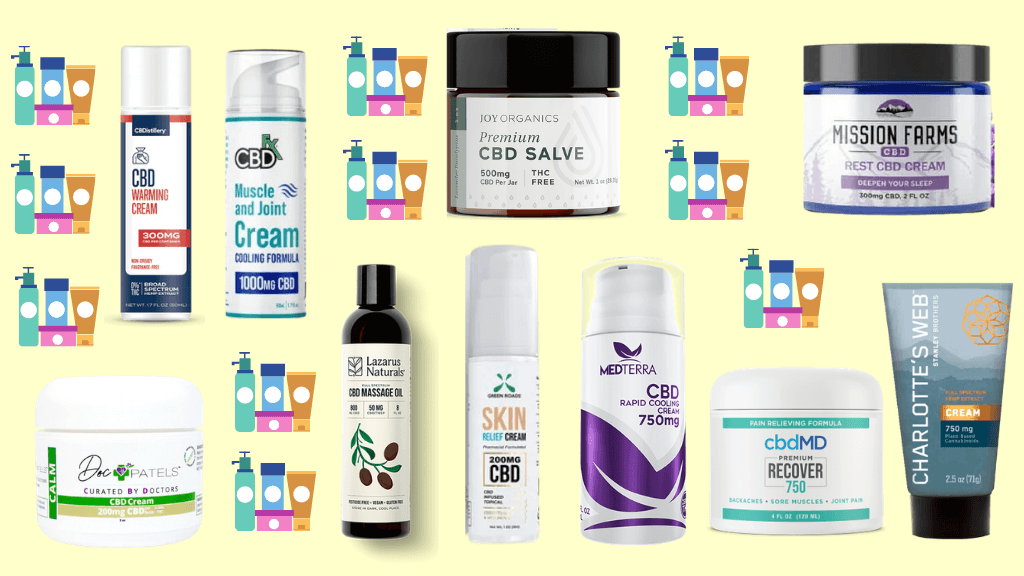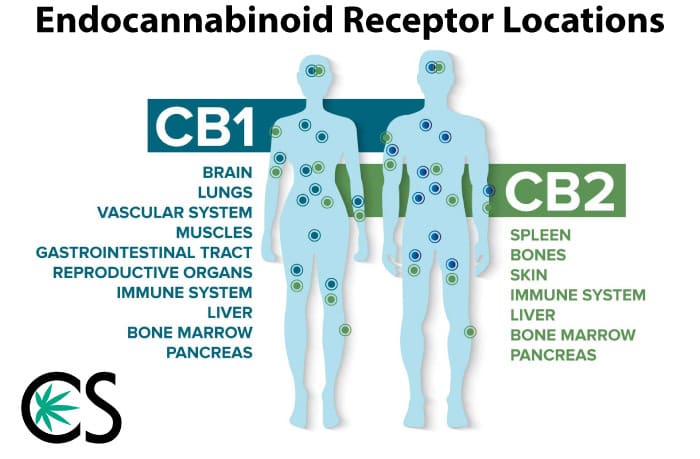It’s always good to get a refresher on information that you are familiar with, or if you are a beginner in the world of CBD and cannabis, a quick, basic definition is a great place to start your journey!
CBD stands for cannabidiol. Cannabidiol is one of about 100 cannabinoids, which is a chemical compound, that is found in the cannabis plant.
Other cannabinoids that you would be familiar with may be CBC, CBN, CBG, and the cannabinoid that many people get a bit confused about the difference between CBD and this other cannabinoid is THC.
THC is a cannabinoid that has a psychoactive effect that makes you feel “high” or “stoned.” While CBD does have a similar effect of making your body feel more relaxed, somewhat similar to THC, CBD does not make people feel “stoned.”
It actually can assist in bringing your body back to homeostasis which is important at times so that your body has the opportunity to heal from whatever is affecting you at that moment.
Cannabidiol was first discovered in 1940 by Raphael Mechoulam and Yechiel Gaoni after they isolated it from Cannabis sativa. It wasn’t until 1963 that researchers found it could bind to human body receptors. This discovery led to further research into its potential medical benefits.
In 1964, Dr Roger Adams isolated CBD from plants and determined that it had analgesic effects in animals. He also found that CBD inhibited brain convulsions in mice and blocked the peristaltic action of intestinal smooth muscle.
In 1988, Dr Raphael Mechoulam isolated another cannabinoid called CBD-A and determined that it was non-psychoactive but had anti-seizure activity in animal models. He then separated another non-psychoactive cannabinoid called cannabigerol (CBG). CBG is a precursor to other cannabinoids within the cannabis plant, including THC and CBD!
Different Forms of CBD
As mentioned, Cannabidiol (CBD) is a compound in the cannabis plant that has many therapeutic properties. It is non-psychoactive and has shown to have potentially significant effectiveness in assisting with the treatment of epilepsy, anxiety, depression, PTSD, and insomnia.
The popularity of CBD has led to an increase in the number of CBD products available on the market. You can find CBD oil tinctures, capsules, edibles, and even CBD honey sticks! Below are some of the ways you can consume CBD.
CBD Gummies
CBD Gummies are one of the most popular ways to get your daily dose of CBD. They are usually sweet, are always a measured amount of CBD, and sometimes you can find vegan CBD gummies! Not only that but almost every CBD brand produces a CBD gummy. Some of our favorite full-spectrum CBD gummies are by Five CBD which only produces full-spectrum CBD products. CBD gummies usually come in premeasured doses of 10mg to 25mg, but sometimes you can find a brand that offers them with high amounts of CBD, like Cheef Botanicals which has a 100mg piece in their 30-count bottles.

CBD Drinks
A CBD category that has had a ton of movement within the last couple of years is CBD drinks. CBD drinks come in many forms including CBD water bottles, CBD coffee, CBD soda, CBD tea, and one of our favorites at CBD School, dissolvable powder, like this one offered by Caliper CBD, that can stay in your bag until you get the urge of adding some CBD to your system.

CBD Oil Tinctures
The most common CBD product that is associated with the CBD industry is CBD oil which comes in a bottle that has a dropper that delivers the CBD under your tongue sublingually. Place a few drops under your tongue, let it absorb into your system, and go about your day! Tinctures are an easy way to get your daily dose of CBD, however, it is difficult for some to get a consistent dose on a daily basis. You can also add tincture drops to smoothies or other recipes for added health benefits.
CBD Topicals
Read: Find out what brands we believe have the best CBD topicals
One of the best ways to combat sore muscles and joints is by rubbing some CBD lotion, balm or CBD salve into your skin and allowing the CBD and other ingredients to work there magic! Seriously, we’re not sure where we would be if CBD topicals hadn’t been invented. By combining ingredients like arnica, peppermint, shea butter, and so much more, with CBD, CBD brands have really assisted us weekend warriors with halting the throbbing pains we used to get from extending our workout a little bit too far. One of our favorites is the Recover Cream by cbdMD, it really comes in handy!

CBD Flower
Some of you out there reading this may be more comfortable getting your daily CBD by smoking either CBD flower, or if you’re not into rolling your own, CBD cigarettes, or pre-rolls. Either are really a great way to niche down on a specific CBD strain you know provides the assistance you’re looking for. As an example if you have insomnia or sleeping issues, you may want to pick up your self some Indica CBD flower which is a great way to extend your time counting sheep. Indica is a great CBD strain for sleep, and because most, if not all, CBD brands aren’t specific with what CBD strain they use in a product, buying CBD flower could be very beneficial. Another way to consume CBD via smoking is CBD vape cartridges or CBD vape juice.
Benefits of Using CBD
Many studies have shown that CBD has the potential to be beneficial when it comes to assisting some people withh certain ailments.1 This doesn’t mean that you should rely CBD to “cure” you of anything. More studies need to be performed to ensure that CBD can have a longterm benefit for consumers.
With that said, CBD has shown to have a positive effect on those with sleeping disorders, anxiety issues, chronic pain, and more ailments.

A lot of the benefits that CBD provides consumers with is due to the endocannabinoid system. This system helps to regulate many activities within the body like pain perception, maintenance of bone mass, and many others. Below are a few ways that CBD may assist with common issues people have:
Helps with Inflammation
Inflammation is integral to the body’s immune response to infection or injury. In most cases, though, inflammation becomes chronic and prolonged inflammation can cause severe health conditions like heart disease and diabetes. Inflammation can also occur without any apparent cause, such as allergies or autoimmune diseases like arthritis. Chronic inflammation is one of the leading causes of cancer development in humans today because it promotes cell growth, leading to tumor formation (cancer starts as normal cells that have gone rogue). CBD assists in combating ones inflammation, which can bring the body back to homeostasis.
May Help Treat Epilepsy
Read: Is using CBD for Epilepsy Effective?
A recent study found that CBD significantly reduced seizure frequency in people with epilepsy when taken in combination with another anticonvulsant drug.2 The results were compared to patients taking only the anticonvulsant drug with no changes in their dosage schedule or treatment regime. The FDA has actually approved a CBD based drug, Epidiolex, for the treatment of seizures associated with Dravet syndrome, and Lennox-Gastaut syndrome.
Reducing Anxiety
A study showed CBD might help in reducing anxiety in people with a social anxiety disorder (SAD).3 Studies have found that CBD oil reduced stress hormone levels in rodents exposed to stressful situations — suggesting it can also help reduce anxiety in humans. We mentioned before how CBD can be very beneficial for getting the body back to a homeostasis feeling, which in turn reduces anxiety levels in consumers of CBD.
Pain Relief
CBD has been shown to possibly reduce pain in patients with multiple sclerosis, rheumatoid arthritis, diabetes-induced nerve pain, and other painful conditions. Again, while many studies show that CBD may be very useful in combating pain, and chronic pain, it is not a clear cut solution for curing ailments. It’s best to find a brand and CBD product that works for you and to slowly add it into your regimine if your doctor says that you won’t have any drug interactions with any current drugs and CBD.
Conclusion
Cannabidiol, CBD, is a non-psychoactive cannabinoid of the cannabis plant. Unlike THC, it does not produce a “high.” CBD is used by people for various conditions to assist them, including chronic pain and post-traumatic stress disorder.
CBD has also been used to assist children who deal with seizures. Cannabidiol can be found in multiple forms, including capsules, tinctures, oils, and edibles. The extraction process involves heating the plant material until all of its chemical compounds are released. Cannabidiol can be extracted from both hemp and marijuana plants.
While there have been many studies to date about the benefits that CBD may provide, more studies need to be completed prior to us having a true understanding of the benefits of this amazing cannabinoid.
references
1Moltke, J., & Hindocha, C. (2021). Reasons for cannabidiol use: a cross-sectional study of CBD users, focusing on self-perceived stress, anxiety, and sleep problems. Journal of cannabis research, 3(1), 5. https://doi.org/10.1186/s42238-021-00061-5
2Silvestro, S., Mammana, S., Cavalli, E., Bramanti, P., & Mazzon, E. (2019). Use of Cannabidiol in the Treatment of Epilepsy: Efficacy and Security in Clinical Trials. Molecules (Basel, Switzerland), 24(8), 1459. https://doi.org/10.3390/molecules24081459
3Blessing, E. M., Steenkamp, M. M., Manzanares, J., & Marmar, C. R. (2015). Cannabidiol as a Potential Treatment for Anxiety Disorders. Neurotherapeutics : the journal of the American Society for Experimental NeuroTherapeutics, 12(4), 825–836. https://doi.org/10.1007/s13311-015-0387-1
